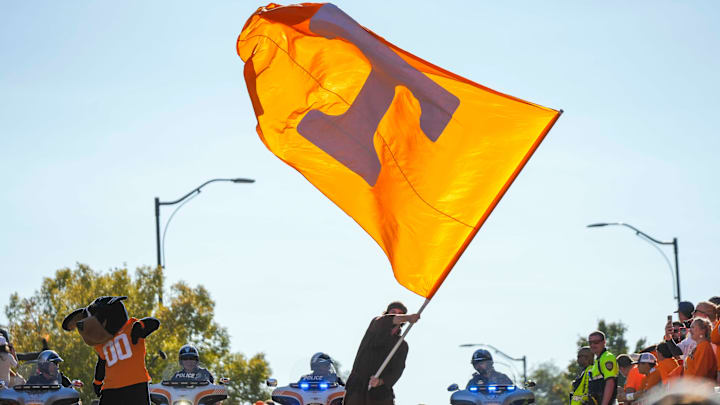College athletics continues to change in the NIL era. On Friday evening, Judge Claudia Wilken approved the House v. NCAA settlement. This decision will lead to revenue sharing and roster limits throughout college athletics.
College athletics will now have a salary cap of around $20 million. Football programs could have anywhere between $13 and $16 million to spend on their teams for the 2025 season.
"Despite some compromises, the settlement agreement nevertheless will result in extraordinary relief for members of the settlement classes," Judge Wilken shared. "If approved, it would permit levels and types of student-athlete compensation that have never been permitted in the history of college sports while also very generously compensating Division I student-athletes who suffered past harms."
The settlement will also create a new NIL clearinghouse for third-party NIL deals of $600 or more. The new clearinghouse, "NIL Go," must approve all contracts meeting that restriction.
If the NIL deal is not approved, the school could be fined, or the athlete could be ineligible for the upcoming season, creating massive implications for NIL contracts.
It was reported that 70% of past NIL deals would have been denied under the new settlement and NIL guidelines, but 90% of deals with public companies would have been approved.
Under the new settlement, roster limits will also be phased into college athletics. The proposed roster changes include 105 for football, 15 for men's and women's basketball, 34 for baseball, 28 for men's and women's soccer, 25 for softball, and 18 for volleyball.
Paul Finebaum did not hold back from calling out the NCAA and its inability to govern college athletics, belittling the organization to just "tournament directors," and he's not wrong.
"We're still having tournaments, such as the Women's World Series and the Men's Baseball Tournament, but the NCAA, as we know it, is gone," Finebaum said on Sportscenter. "They literally have no jurisdiction whatsoever other than to be tournament directors."
The NCAA has lost virtually all control over member schools, allowing them to do almost anything they want. The NIL era is often referred to as the "Wild West," and that is because the NCAA's controlling power is diminishing more and more every day.
How could the settlement affect Tennessee athletics?
The settlement and future outcomes could impact Tennessee athletics' approach moving forward, including the possibility of being kicked out of the SEC if they comply with state law, which contradicts the NCAA.
Membership contracts are currently being introduced throughout Power Four conferences, challenging Tennessee's new state law stating that state institutions and their NIL collectives can continue to pay above the proposed salary cap.
It also states that schools cannot sue the College Sports Commission, which will be the group enforcing the new rules under the House settlement.
If Tennessee, or any other Power Four school, chooses not to sign the agreement, it could be kicked out of its conference and blackballed from joining other conferences.
Tennessee Athletic Director Danny White seemed to be optimistic about the House settlement and its effectiveness in college athletics moving forward, but believes collective bargaining is the key to leveling the playing field across all sports.
"There’s been a lot of speculation around collective bargaining," White shared. "Every sports organization in our country has collective bargaining for a reason. It’s very complicated. These are students. We don’t have just one sport. We have twenty and only two of which are profitable. It’s a really complicated situation that we have been deep in for 3-4 years. I think everyone is search for answers.
"There’s a lot to transpire to see how that plays out. But as you and I have discussed, I think collective bargaining is maybe where we land down the road. But in a competitive space like this, everyone’s trying to win."
The House settlement decision isn't the only major decision courts have to make regarding college athletics. There are also decisions waiting to be made regarding athletes' eligibility, with the possibility of changing the original four years of eligibility to five years of eligibility.
That could drastically change what college athletics looks like moving forward and could even help Tennessee, as Jordan Gainey and Zakai Zeigler have both expressed interest in returning to play one more season for Rick Barnes if it is passed.
Tennessee could benefit from multiple sports from the results of the house settlement and potentially add a fifth year of eligibility for college athletes.
The Vols want to continue being championship contenders across various sports, and the revenue sharing and NIL caps could help Tennessee compete with the blue bloods of college athletics moving forward.
